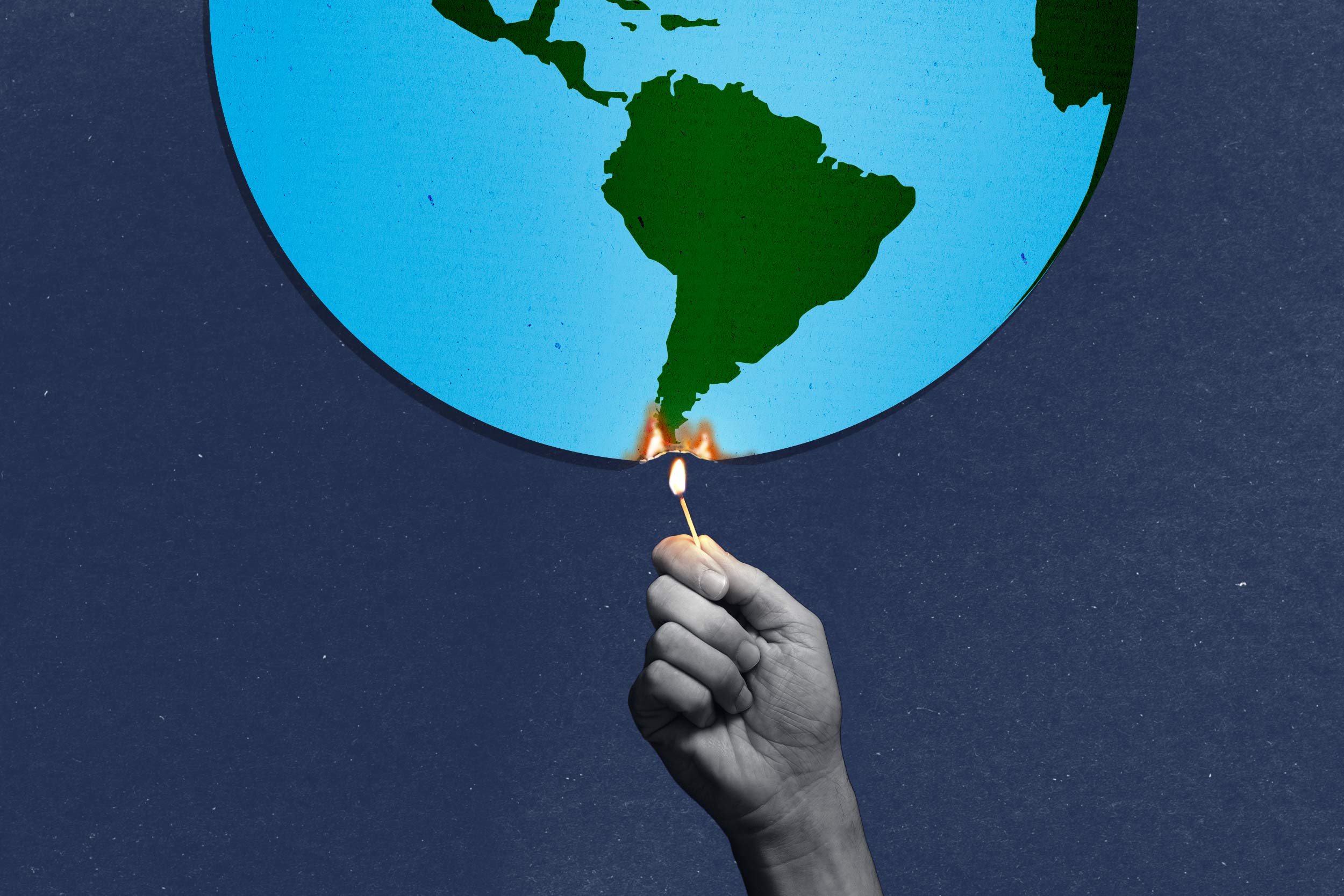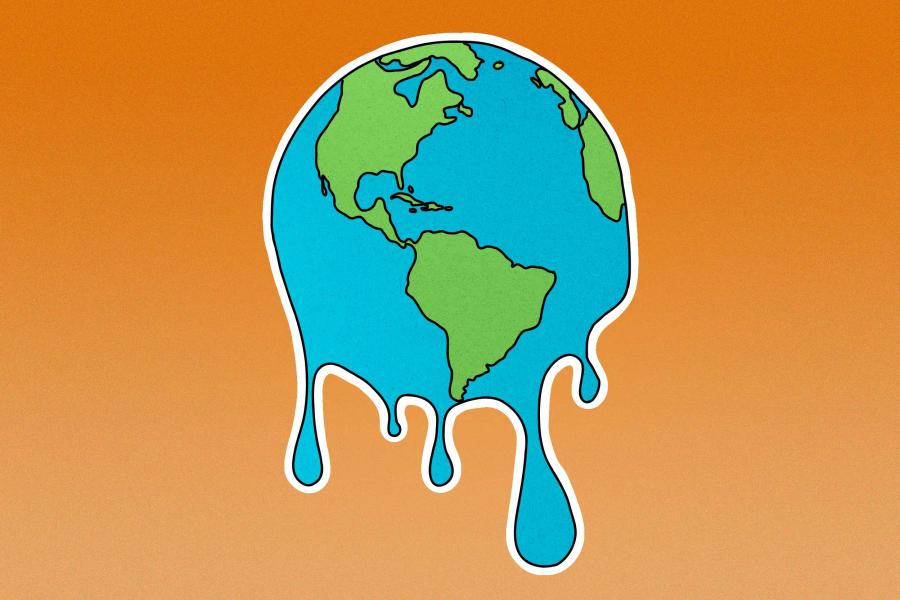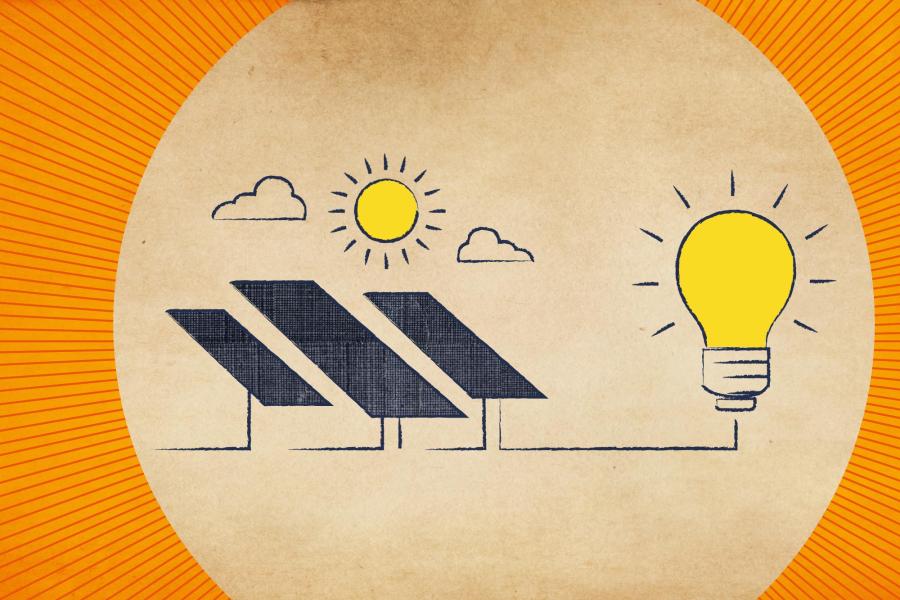If it feels like it’s getting hot around here, it’s not just you.
As 2024 rolls to an end, it’s on track to be the warmest on record after a streak of exceptionally high monthly global mean temperatures.
The year even spurred the World Meteorological Organization to issue a red alert as 2015-2024 is on track to be the warmest 10-year span on record, resulting in melting glacial ice, rising sea levels and warmer oceans that spawn extreme weather across the globe.
In the middle of it all, the annual United Nations Climate Change Conference began Monday in Baku, Azerbaijan, and goes until Nov. 22. Countries are expected to present updated national climate action plans, and hold discussions on international funding to help reduce greenhouse ga emissoins.
To better understand the concept of climate change and how it affects our world, UVA Today reached out to Scott Doney, the Joe D. and Helen J. Kington Professor in Environmental Change in the University of Virginia’s Department of Environmental Sciences.
Q. Climate change is often presented as a controversial issue rather than a problem that needs to be solved today. What does science say about climate change, and what is the supporting evidence?
A. Long-term data sets on surface temperature on land and in the ocean clearly show that the world is warming and warming at an unprecedented rate. On a global scale, the past decade was the warmest period in the historical record, and 2024 is on track to break new records. Additional evidence for warming and climate change comes from data on melting glaciers, reduced Arctic sea ice and rising sea levels. These observations, along with theory and numerical climate models, all point to human emissions of greenhouse gases, such as carbon dioxide and methane, as the primary cause of the warming and changing climate.

Scott Doney, UVA’s Joe D. and Helen J. Kington Professor in Environmental Change, says studies show a warmer planet will result in more frequent and intense extreme weather events like recent floods from rain that fell in Spain. (University Communications photo)
Q. Weather-related disasters are also in the news – catastrophic flooding in Spain, Hurricane Helene ravaging the Carolinas, and droughts and wildfires in the western U.S. Are these extreme weather events related to climate change, and if so, how?
A. Climate change alters more than just temperature; importantly, it also alters the cycling of water. A warmer surface ocean evaporates more water vapor into the atmosphere. That can then fall in more intense rainfall events, leading to flooding. Climate studies indicate we can expect a warmer planet to result in more frequent and often more intense extreme weather events like heat waves, periods of heavy rainfall and stronger hurricanes. Climate change can also exacerbate droughts and wildfires by raising temperatures, drying soils and altering rainfall patterns.
Q. This year, the U.N. Climate Change Conference is focusing on how to limit damages from climate change, particularly in vulnerable developing nations. What are the challenges?
A. In the 2015 Paris Agreement, the international community committed to limiting further climate change, setting a specific target to hold “the increase in the global average temperature to well below 2 (degrees) C above pre-industrial levels.” The level of global warming is already approaching 1.5 Celsius (2.7 Fahrenheit), and stabilization below the 2 C (3.6 Fahrenheit) target requires rapid reductions in human emissions of carbon dioxide, methane and other greenhouse gases.
The net emissions to the atmosphere need to reach zero before the end of this century, leading many to suggest that rapid decarbonization of the economy should be coupled with approaches that actively remove carbon dioxide from the atmosphere. Progress on decarbonization – expanding renewable electrical energy from solar and wind being a good example – needs to accelerate quickly to meet the Paris Agreement.










